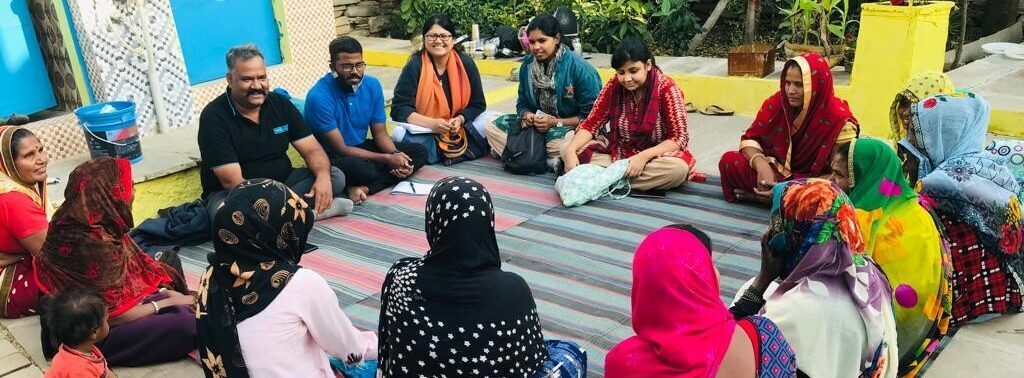Eliminate child labour and improve labour rights for adults
The state of Rajasthan in India, is a major source of natural stone, including for export to European markets. The town of Budhpura and the surrounding hamlets in the Bundi district are known for mining high-quality sandstone. The district also produces and exports cobblestones on a large scale.
This case study shows how WNCB partners – the Indian NGO Manjari and semi-governmental organisation ARAVALI – work with the community, the government and the stone sector in Budhpura and surrounding hamlets to eliminate child labour and improve labour conditions for adults in the cobblestone yards and mines. Together with Dutch-based WNCB counterpart Arisa, their activities are linked with international companies and they jointly advocate for responsible business conduct by companies in the sandstone supply chain.
A story about the steps to take, challenges and successes on the road to eliminating child labour and improving labour conditions for adults by combining an area-based and supply chain approach.
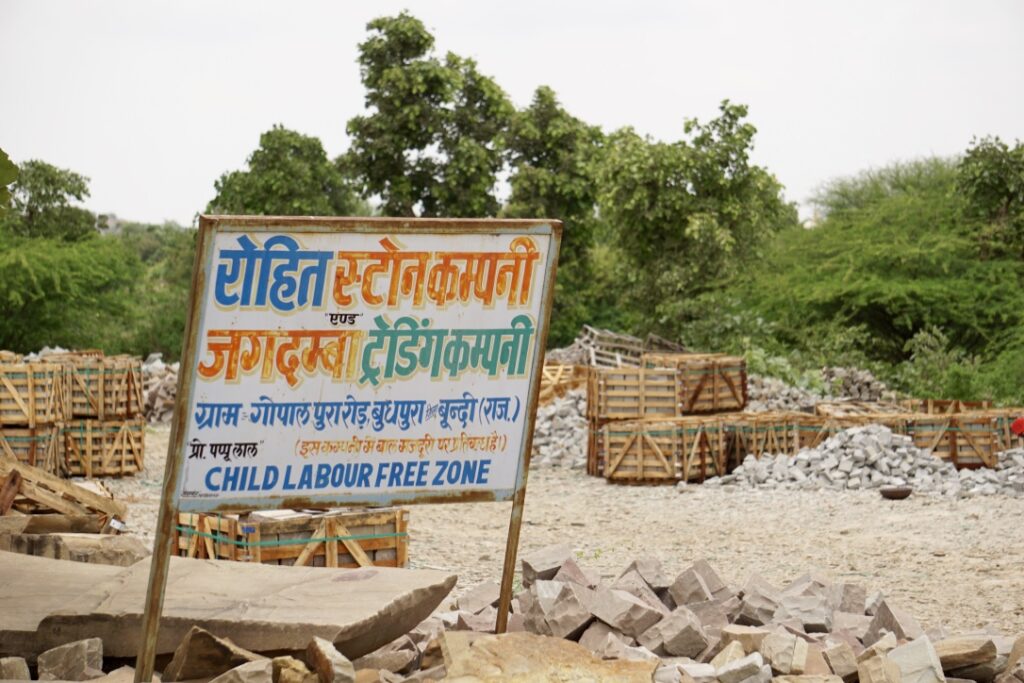
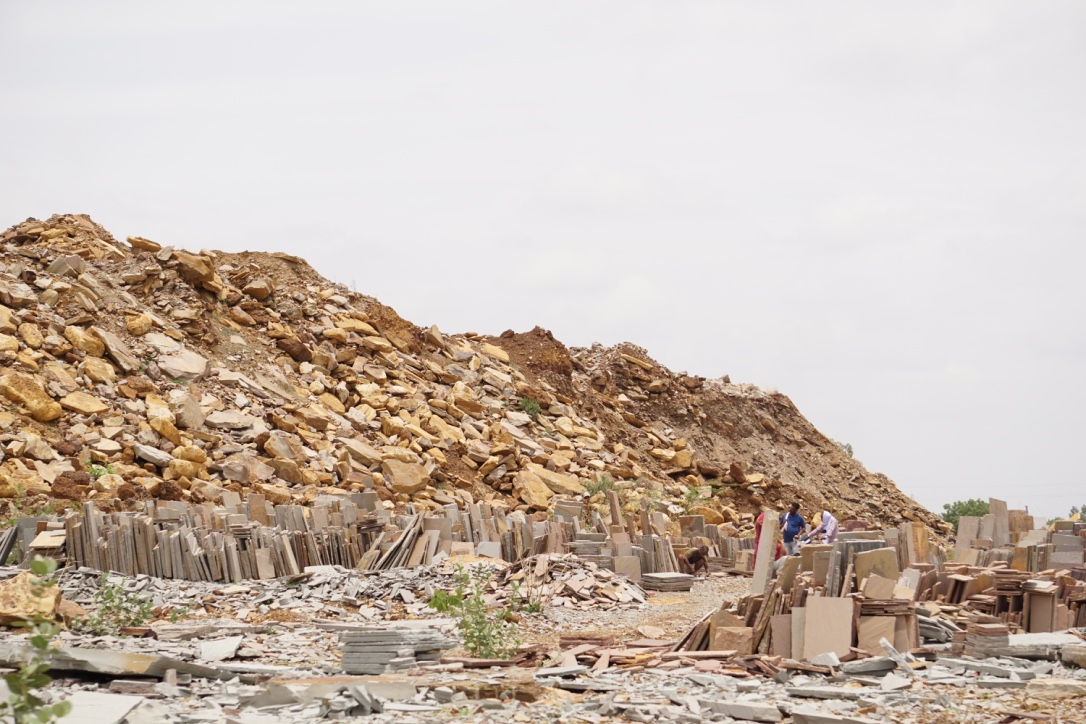
Background information
India is one of the largest producers of natural stone in the world. The mining and processing industry is a major employer, with three million people being employed either directly or indirectly. Child labour is prevalent, mainly in home-based work and the lower tiers of the supply chain. Adult workers, particularly those mining at quarry sites, are often subjected to the denial of their rights as workers, low wages, and inhumane working conditions.
Budhpura is a village in the heart of the sandstone belt in Bundi district in the south-east of Rajasthan. The area is a major source of sandstone cobbles, which are mainly sold on the Belgian, northern French, British and Dutch markets.
The area-based approach programming in Budhpura includes 2,422 households across 13 villages and hamlets. Poverty levels are high and access to basic rights is limited. Essential services such as potable drinking water, electricity, health and education in these areas are insufficient.

Challenges
Most of the cutting of cobbles is done at home by women and younger children, which makes it very difficult to control the use of child labour. The majority of the families in Budhpura are migrant families. Some of these came to Budhpura 20 years ago and still consider themselves temporary migrants; other families arrive and then leave again within a few years. Budhpura’s population therefore fluctuates. Sandstone mining and processing is considered an unorganised sector.
Integrating approaches
The area-based approach means addressing child labour and its root causes by strengthening child protection systems, and working towards the norm that no child should work and every child should be in school. In the area-based approach all actors – teachers, local authorities, village leaders, employers, parents and children – work together.
The area-based approach is combined with a focus on human rights due diligence and active engagement of companies in the supply chain aimed at systematic, planned improvements in adults’ working conditions of adults – the supply chain approach. Business action and related interventions that focus on workplace conditions and in communities are needed in order to work towards sustainable change. In addition, co-operation on all levels is required in order be able to offer children in the intervention area an alternative to work: quality education and/or decent youth employment.
Eliminating child labour needs an integrated approach
“We focus on the development of children. And from them to their parents. From their parents to their work situation. From their work situation to the whole natural stone supply chain.”
Manish Singh, Secretary of Manjari
Working with an area-based approach in Budhpura
The specific context in Budhpura has only limited space and means to intervene and work on changes. A ‘one-size-fits-all’ strategy will not work.
Manjari’s story shows how applying the area-based approach is proving both useful and successful in the specific context of the stone sector in Rajasthan. Most of the challenges needed to be addressed at community level. And at the same time, involvement and co-operation with governments and the stone business sector is key.
Manjari’s area-based approached in Budhpura is based on establishing Child Labour Free Zones. This process includes community mobilisation, involving teachers and local businesses, linking families to social schemes such as health insurance and widows’ benefits, strengthening government policies and services through advocacy, and improving the quality of and access to education and healthcare.
Working in the supply chain
The area-based approach implemented by Manjari is combined with a supply chain approach in collaboration with ARAVALI and Arisa, aimed at systemic improvement of working conditions throughout the supply chain. In Budhpura, Manjari organises workers into informal labour groups and raises awareness of labour rights. Manjari engages with cobble yard owners and traders in Budhpura, enters into dialogue about working conditions, and works together with local business towards improvements, including promoting the Child Rights and Business Principles framework.
ARAVALI established SFNS, a multi-stakeholder platform at state level, to foster dialogue between cobble traders, mine owners, exporters, governments and civil society. Manjari is a member of SFNS, and uses this platform to share information about the challenges in Budhpura and its activities in the community and with local businesses. Through their co-operation with Arisa in the Netherlands, Manjari and ARVALI engage with international companies that source sandstone slabs and cobbles from Budhpura. They use different strategies to build trust and engage with businesses, including research on working conditions, critical dialogue about labour rights violations in the supply chain, and collaborative approaches to address the violations and work towards improvements.
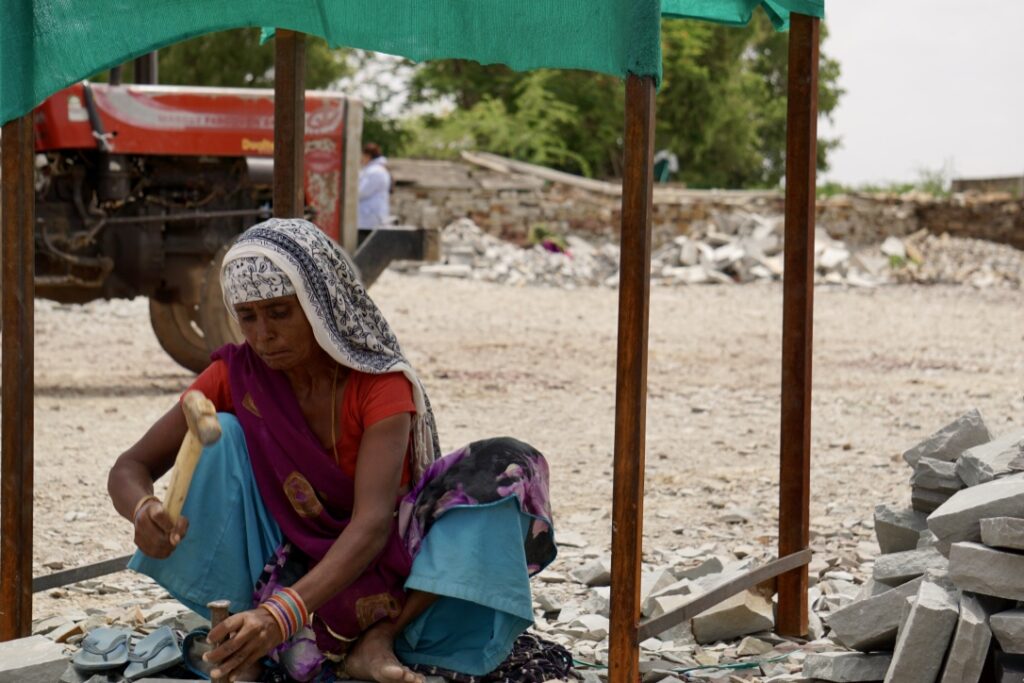
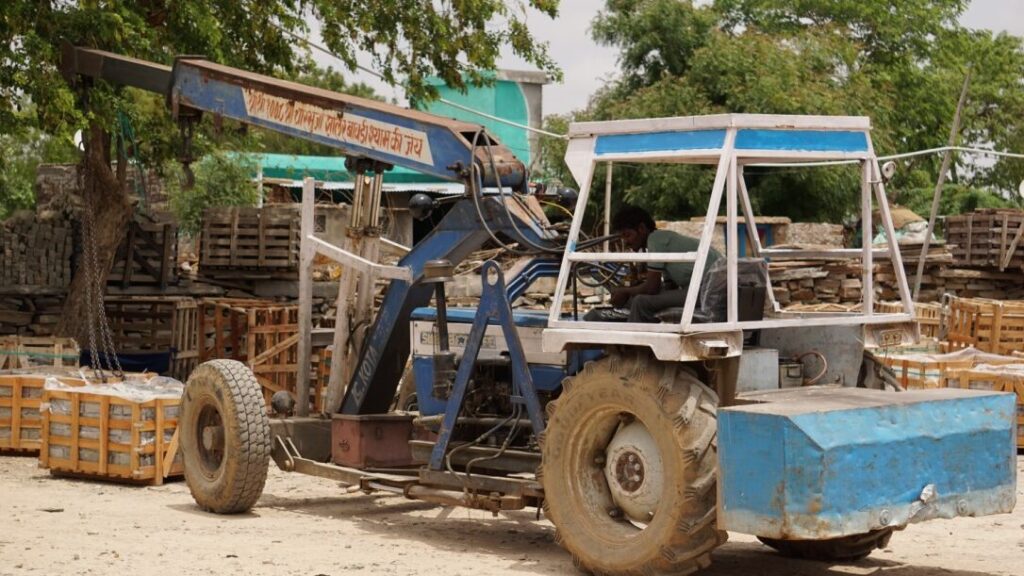
Changes and successes
Manjari’s work is paying off. In the WNCB direct intervention areas, more than 85% of children go to school or another education facility every day – an increase of 18% since the launch of the programme in 2019. Support for government schools, running motivational centres (including tuition classes), community libraries, and school enrolment rallies have been critical contributing factors to this significant change.
Social structures in the mining communities have become stronger through mobilising the community and organising the community members in groups (like Self Help Groups, child rights committees and informal workers’ groups). Women’s economic development was furthered. The business sector is more open to dialogue on responsible business conduct, child labour in cobble yards has been reduced, and the first steps have been taken towards improving working conditions for adult workers in cobble yards, mines and processing factories. International companies are involved in the dialogue as well through Trustone (natural stone sector agreement). TruStone facilitates dialogue sessions with exporting companies and stakeholders in Rajasthan, to discuss working conditions in the state’s sandstone sector with the aim of improving working conditions throughout the supply chain.
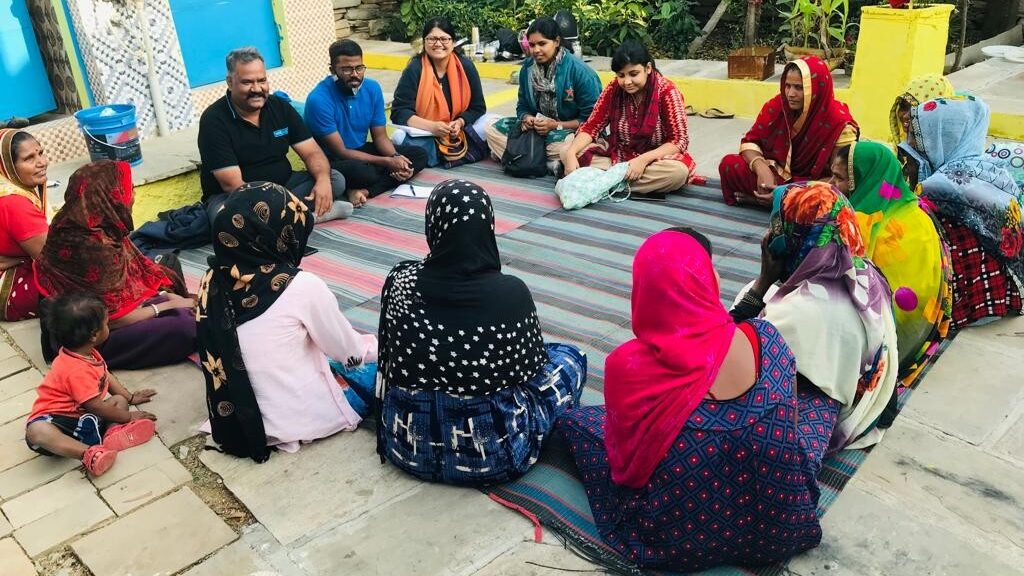
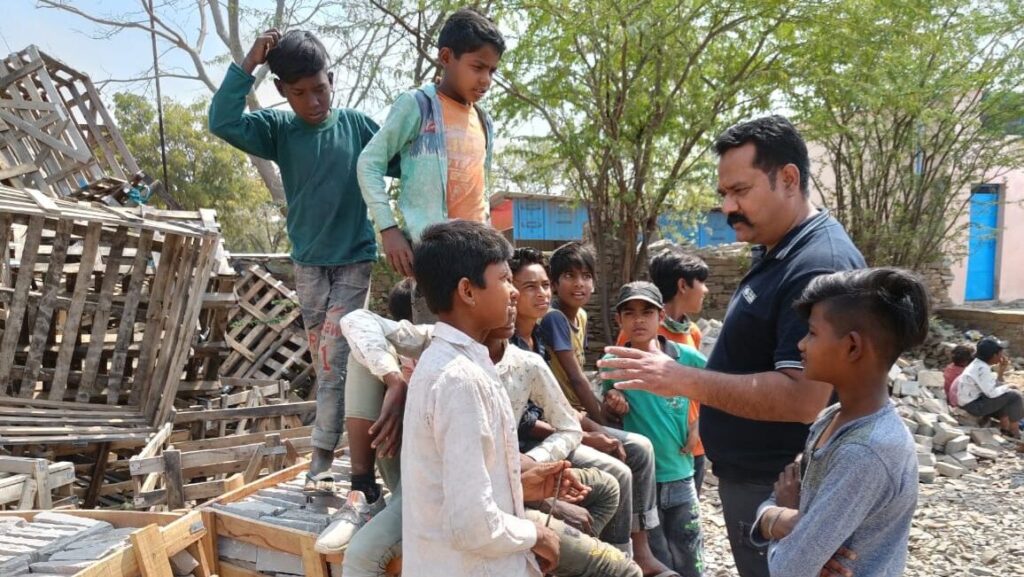
Next steps
Manjari’s efforts in Budhpura are a work in progress, and require continuous adaptation of strategies and responses to (new) challenges. With the increased shift to home-based work in the cobblestone-cutting sector, Manjari is putting more effort into having community mobilisers conduct family visits. Manjari and ARAVALI have set up a fellowship programme: fellows in other geographical areas in Rajasthan’s stone sector (marble, limestone) are being involved and trained to adapt the area-based approach to their own context. Strengthening the quality of education in government schools is key to getting children into school and ensuring that they stay there. Organising workers is an important strategy in progressing towards decent work for adults and combatting child labour.

